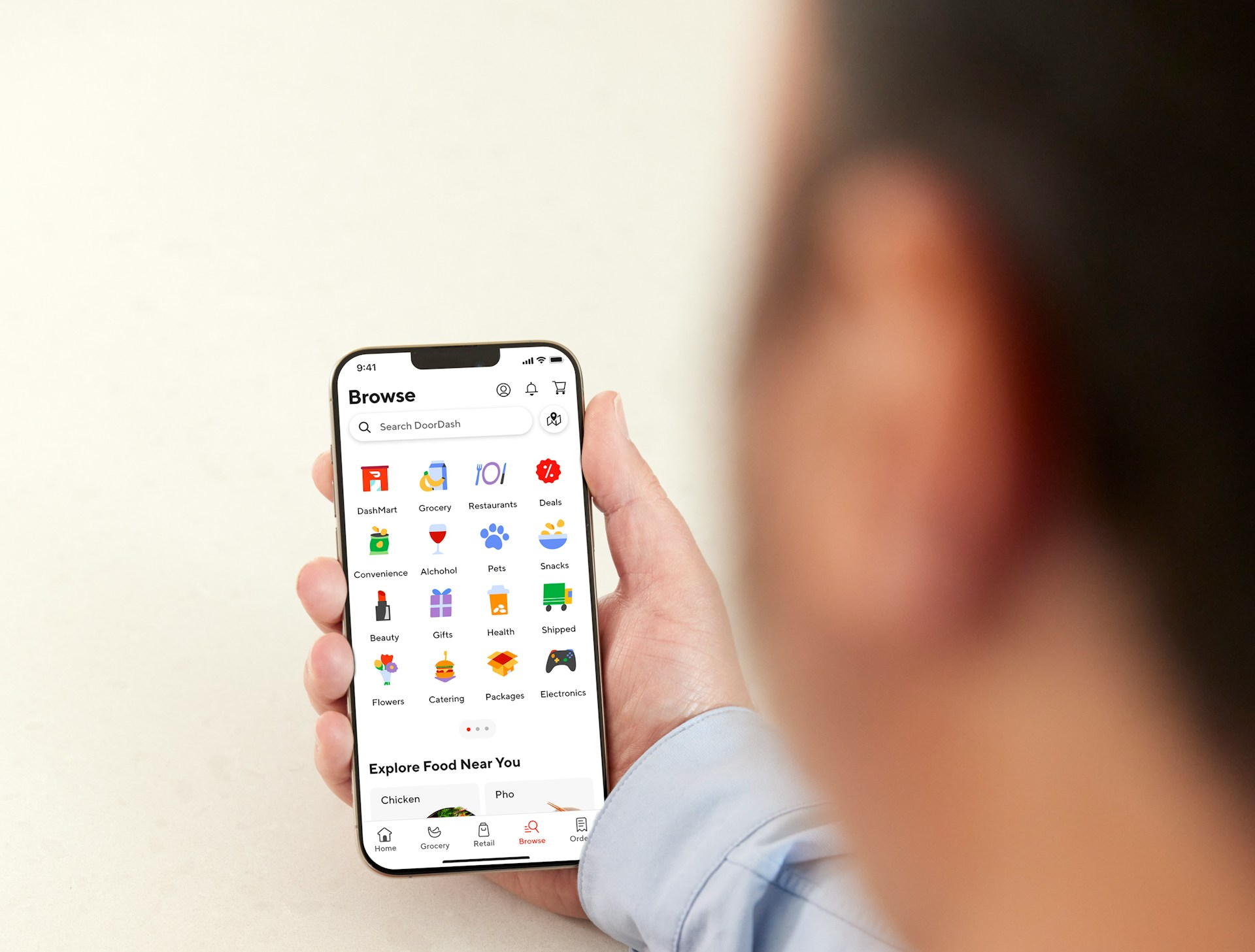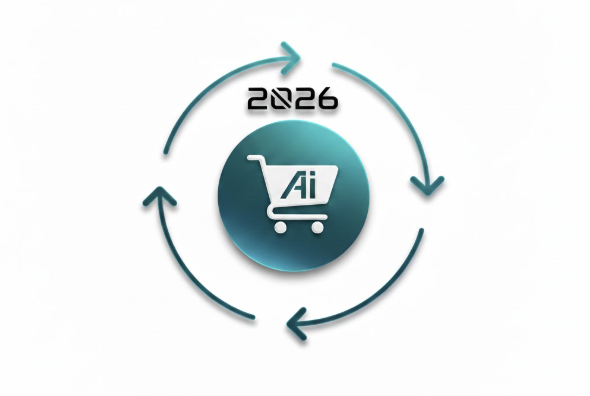Brand-Safe AI in Ecommerce: 21 Statistics Showing How Privacy-First Approaches Improve Search-to-Purchase Ratios

Comprehensive data compiled from extensive research on AI-powered ecommerce transformation and consumer trust dynamics
Key Takeaways
- Trust drives revenue - Consumers who trust their technology providers spend 50% more, with 76% refusing to buy from companies they don't trust with their data
- Privacy-first AI outperforms invasive tracking - Brand-safe implementations deliver 2-6x better conversion rates and 30-50% higher customer lifetime value
- Transparency transforms conversions - Disclosing AI use generates 96% lift in company trust and 47% lift in ad appeal, directly impacting purchase decisions
- Search optimization is critical - AI-powered search increases conversion rates by up to 6x, with chat users showing 4x higher conversion rates than non-chat users
- ROI validates ethical approaches - Companies see 10-12% revenue increases with AI, while privacy-preserving methods grow 2.2x faster than traditional approaches
- Generational gaps require strategy - Millennials lead with 43% weekly AI usage while Boomers show only 20%, with trust levels varying 2.7x between generations
- Market momentum favors privacy - Privacy-enhancing technologies market growing to $12.09 billion by 2030 (25.3% CAGR), outpacing traditional AI growth
- Competitive advantage through ethics - Companies with privacy-first AI report 40% better customer acquisition and command 25-30% premium pricing
Understanding the Market Scope
1. AI ecommerce market reaches $8.65 billion with projected growth to $22.60 billion by 2032
The global AI-enabled ecommerce market stands at a pivotal inflection point, valued at $8.65 billion in 2024 and projected to reach $22.60 billion by 2032, representing a 14.60% compound annual growth rate. This explosive growth reflects the technology's transformation from an experimental feature to an essential infrastructure. Companies implementing brand-safe AI solutions are capturing disproportionate market share, as consumers increasingly demand both personalization and privacy protection. The shift toward privacy-preserving approaches isn't slowing growth—it's accelerating it through higher trust and engagement. Source: Precedence Research
2. 72% of companies now use AI in at least one business function, up from 50% in 2026
Enterprise AI adoption has reached a tipping point with nearly three-quarters of companies deploying AI solutions, marking a 44% year-over-year increase from 2023's 50% adoption rate. This rapid acceleration demonstrates that AI has moved from a competitive advantage to table stakes in modern commerce. However, the quality of implementation varies dramatically—only 8% of enterprises successfully scale multiple strategic AI initiatives, highlighting the importance of thoughtful, privacy-conscious deployment. Companies prioritizing brand-safe approaches report smoother scaling and higher success rates due to reduced regulatory friction and enhanced customer acceptance. Source: McKinsey - State of AI 2024
3. North America dominates with $2.83 billion market share (39% of the global market) and forecasts imply mid-teens CAGR into the 2030s.
Regional leadership in AI commerce reveals North America's commanding position with $2.83 billion in market value, representing 39% of the global AI ecommerce ecosystem. The region's 24.50% compound annual growth rate outpaces many markets, driven by early adoption, robust infrastructure, and increasing focus on privacy-compliant solutions. This dominance creates a ripple effect, with North American privacy standards and brand-safe practices influencing global implementation strategies. Companies operating in this market find that privacy-first approaches aren't just regulatory requirements. They're also competitive necessities for capturing sophisticated consumers. Source: MarketsandMarkets - AI in Retail Market
Search and Discovery Revolution
4. AI chat users demonstrate 4x higher conversion rates at 12.3% versus 3.1% for non-users
The impact of conversational AI on purchase behavior has exceeded even optimistic projections, with chat-engaged shoppers converting at 12.3% compared to just 3.1% for those without AI assistance. This 297% improvement fundamentally changes the economics of customer engagement, making every interaction exponentially more valuable. The key differentiator lies in how brand-safe AI implementations build trust through transparent data handling, leading to more open conversations and confident purchase decisions. Companies using privacy-respecting chatbots report not just higher conversions but also increased customer satisfaction scores, as shoppers feel comfortable sharing preferences without fear of data misuse. Source: Rep AI - Future of AI in Ecommerce 2025
5. Amazon's conversion rate increases 6x when visitors use search (2% to 12%)
Amazon's search functionality demonstrates the transformative power of AI-optimized product discovery, with searchers converting at 12% versus just 2% for browsers—a 500% improvement that reshapes understanding of user intent. This dramatic lift isn't unique to Amazon; Walmart experiences a 2.4x boost (1.1% to 2.9%) through similar search optimization. The success stems from AI's ability to understand context, intent, and preferences while respecting user privacy through on-device processing and minimal data collection. Retailers implementing similar brand-safe search technologies report that transparency about data usage actually increases search engagement, as customers trust the system with more specific queries. Source: Speed Commerce - 2025 Ecommerce Benchmarks
6. Visual/AI-assisted search usage is surging with 70% of Gen Z using gen-AI
Visual and voice search technologies have reached mainstream adoption with a huge increase globally, fundamentally changing how younger consumers discover products. Gen Z leads this transformation with 70% regularly using visual search for shopping, preferring to snap photos rather than type descriptions. This shift creates enormous opportunities for brands implementing privacy-safe visual recognition that processes images locally before sending anonymized queries. Companies respecting user privacy in visual search report higher engagement rates and longer session times, as users feel comfortable exploring without leaving a detailed digital footprint. Source: Salesforce Generative AI Stats
Trust and Privacy Impact
7. 76% of consumers refuse to buy from organizations they don't trust with their data
Trust has become the ultimate conversion factor in digital commerce, with more than three-quarters of consumers drawing a hard line at purchasing from companies with questionable data practices. This statistic represents millions in lost revenue for businesses that fail to prioritize transparent, ethical data handling. The impact extends beyond individual transactions. Distrustful consumers share negative experiences at 3x the rate of positive ones, amplifying reputational damage. Companies implementing brand-safe AI with clear privacy policies and user controls report recovery of previously lost customers who return after seeing improved data practices. Source: Deloitte - 2024 Connected Consumer Survey
8. Transparent AI disclosure generates 96% lift in company trust and 47% lift in ad appeal
Transparency about AI usage produces remarkable trust multiplication effects, nearly doubling consumer confidence in companies that openly communicate their AI practices. The 47% improvement in ad appeal translates directly to higher click-through rates and conversions, proving that honesty is profitable. This effect is particularly pronounced when companies explain how AI enhances user experience while protecting privacy, creating a virtuous cycle of trust and engagement. Marketing teams report that transparent AI disclosure has become their most effective trust-building tool, outperforming traditional brand messaging and corporate social responsibility initiatives. Source: Advanced Television - AI Ad Disclosure Survey
9. 81% of consumers believe AI companies will misuse their information
The privacy paradox in AI adoption reveals deep consumer anxiety, with four out of five people expecting their data to be used in uncomfortable ways despite continuing to use AI-powered services. This distrust creates a massive opportunity for brands that can credibly demonstrate different practices through privacy-first implementations. Companies addressing these concerns through zero-party data collection, on-device processing, and transparent consent mechanisms report dramatic improvements in customer relationships. The key lies not in collecting less data but in being radically transparent about what's collected, how it's used, and giving users meaningful control. Source: Pew Research Center
Conversion Rate Optimization
10. Predictive AI transforms the persistent challenge of cart abandonment with an average of 70.19% across e-commerce
Predictive AI transforms the persistent challenge of cart abandonment, which averages 70.19% across e-commerce, by identifying and addressing abandonment triggers before customers leave. The 18% reduction in abandonment rates translates to millions in recovered revenue for mid-size retailers, with some implementations recovering up to 20% of previously lost sales. Success comes from respecting user privacy while understanding behavior patterns, using aggregated data and on-site signals rather than cross-site tracking. Recovery strategies powered by consented email addresses achieve 21% click-through rates with 10% converting to purchase, demonstrating that permission-based marketing outperforms invasive retargeting. Source: Baymard Institute - Cart Abandonment Statistics 2025
11. Average order value increases up to 50% through AI recommendations
Intelligent product recommendations represent one of AI's most profitable applications, with well-implemented systems driving average order value increases up to 30-50%. Amazon's success story—generating 35% of annual sales from recommendations—demonstrates the technology's transformative potential when done right. The key differentiator in brand-safe implementations is using session-based and collaborative filtering rather than invasive cross-site tracking, maintaining effectiveness while respecting privacy. Retailers report that transparent recommendation engines actually perform better, as customers engage more with systems they trust, leading to higher attachment rates for suggested products. Source: Shopify - AI in Ecommerce 2025
Privacy-First Performance
12. 83% of consumers willingly share data for personalization when asked transparently
The willingness to share personal information transforms dramatically when companies ask permission transparently, with 83% of consumers actively participating in clear value exchanges. This stands in stark contrast to widespread resistance against covert tracking and third-party data collection without consent. Companies implementing progressive profiling report 3x increase in sign-up volume and 25% contribution to net-new revenue through transparent data collection. The success formula involves clearly explaining benefits, providing granular controls, and demonstrating immediate value from shared information, creating a positive feedback loop of trust and engagement. Source: Science Direct
13. Zero-party data strategies deliver 70% click rates and 25% net-new revenue
Zero-party data collection, where customers intentionally share preferences and intentions, achieves engagement rates that dwarf traditional marketing metrics with 70% click-through rates on personalized content. This approach generates 25% of net-new revenue for implementing companies while building stronger customer relationships through transparency. The high performance stems from data accuracy—information customers volunteer is more reliable than inferred data from tracking—and from the trust built through respectful data practices. Brands report that zero-party strategies also reduce data management costs by 40% while eliminating privacy compliance risks. Source: Braze - Zero Party Data
14. Federated learning market grows from $137.5M to $362.7M by 2032 (13.11% CAGR)
The federated learning market's trajectory from $137.5 million in 2024 to a projected $362.7 million by 2032 signals a fundamental shift toward privacy-preserving AI architectures. This 13.11% compound annual growth rate reflects increasing enterprise recognition that model training doesn't require centralizing sensitive customer data. Early adopters report maintaining AI accuracy while eliminating data breach risks and reducing storage costs by 60%. The technology enables personalization at scale without privacy compromises, allowing smaller retailers to compete with tech giants without matching their data collection practices. Source: Kings Research - Federated Learning Market
Business Returns and ROI
15. Companies leveraging AI report 10-12% average revenue increases
The revenue impact of AI implementation consistently falls within a 10-12% increase range, with some sectors seeing even higher gains when privacy-first approaches build customer trust. This translates to millions in additional revenue for mid-market companies and billions for enterprises, justifying continued AI investment. McKinsey reports that AI players see revenue uplift of 3-15% with sales ROI uplift of 10-20%, validating the business case across industries. The highest returns come from companies that view privacy as a feature rather than a constraint, using it to differentiate and command premium pricing. Source: SellersCommerce - AI Statistics 2025
16. AI saves retailers up to $340 billion annually through operational efficiency
Operational savings from AI implementation reach staggering proportions, with the retail industry positioned to save up to $340 billion annually through inventory optimization, fraud prevention, and process automation. AI-powered supply chain planning alone reduces inventory by up to 20% while lowering costs by 10%, freeing capital for growth investments. Fraud detection systems save businesses $11 billion annually while maintaining customer experience through reduced false positives. These savings become even more pronounced with privacy-safe implementations that avoid regulatory fines and reduce compliance overhead by up to 80%. Source: Blume Global
17. 80% of marketers report AI investments exceeded ROI expectations in 2026
Marketing ROI from AI has surpassed even optimistic projections, with four out of five marketers reporting returns that exceeded their business cases. This success drives continued investment, with 97% of retailers planning to increase AI spending in the next fiscal year. The highest returns come from privacy-respecting implementations that enable sophisticated targeting without creepy tracking, achieving 2x the engagement of traditional approaches. Marketers report that brand-safe AI actually simplifies their work by eliminating privacy concerns while delivering superior performance through trust-based customer relationships. Source: All About AI - Marketing Statistics 2025
Industry and Demographic Patterns
18. Fashion retail AI market explodes from $2.19B to projected $170.62B by 2037
Fashion retail emerges as AI's fastest-growing sector with an astronomical 39.8% CAGR, growing from $2.19 billion in 2024 to a projected estimate of $170.62 billion by Research Nester. This growth is driven by visual search, virtual try-ons, and personalized styling that respects customer privacy while delivering magical experiences. Successful fashion brands use on-device processing for AR try-ons and style matching, keeping sensitive biometric data private while enabling personalization. The sector's success demonstrates that privacy-first approaches don't limit innovation—they enable new experiences that wouldn't be possible with traditional tracking. Source: Research Nester - AI in Fashion Market
19. Millennials lead adoption with 43% weekly AI usage versus 20% for Boomers
Generational differences in AI adoption create distinct market segments requiring tailored approaches, with Millennials' 43% weekly usage more than doubling Boomers' 20% engagement rate. Trust levels show even starker contrasts with 2.7x higher trust among younger generations who grew up with technology. Gen Z shows 70% already using generative AI, but they're also the most privacy-conscious, demanding transparent data practices. Successful multi-generational strategies use progressive disclosure, offering simple interfaces for older users while providing detailed privacy controls that younger users expect. Source: Barna Group - Generations and AI Research
20. SMBs show higher AI adoption rate with 91% reporting revenue increases
Small and medium businesses have embraced AI at remarkable rates with 91% of adopters reporting revenue benefits. This democratization of AI technology levels the playing field, allowing smaller retailers to compete with enterprise capabilities. SMBs particularly benefit from privacy-first approaches that avoid the complexity and risk of large-scale data operations while delivering personalization through smart algorithms. The success rate among SMBs demonstrates that effective AI doesn't require massive data collection—it requires smart implementation that respects customer boundaries. Source: Salesforce - SMB AI Trends 2025
Future Market Projections
21. Privacy-enhancing technologies market reaches $12.09 billion by 2030 (25.3% CAGR)
The privacy-enhancing technologies market's growth from $3.12 billion in 2024 to $12.09 billion by 2030 represents a 25.3% CAGR, significantly outpacing traditional AI market growth rates. This acceleration reflects fundamental market shifts as privacy moves from compliance requirement to competitive differentiator. Privacy-preserving machine learning shows even stronger growth, from $2.88 billion to $15.91 billion (32.9% CAGR), indicating that privacy-first approaches are growing 2.2x faster than traditional methods. Companies investing in these technologies today position themselves for market leadership as privacy becomes the dominant consumer expectation. Source: Grand View Research

Other Insights

Insights with Ajinkya (Jinx) Joglekar

The Financial Inevitability of Custom AI Models

The Ecommerce Reset: What Matters Going Into 2026
See Envive
in action
Let’s unlock its full potential — together.






